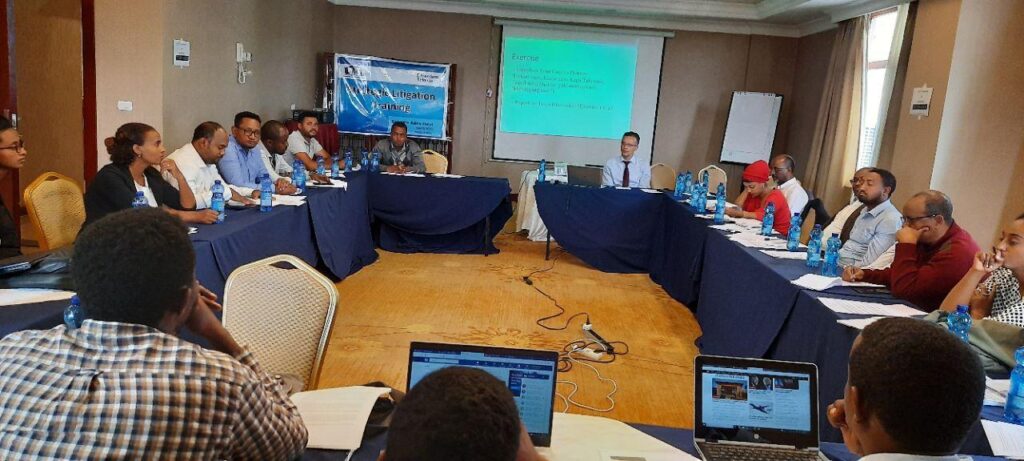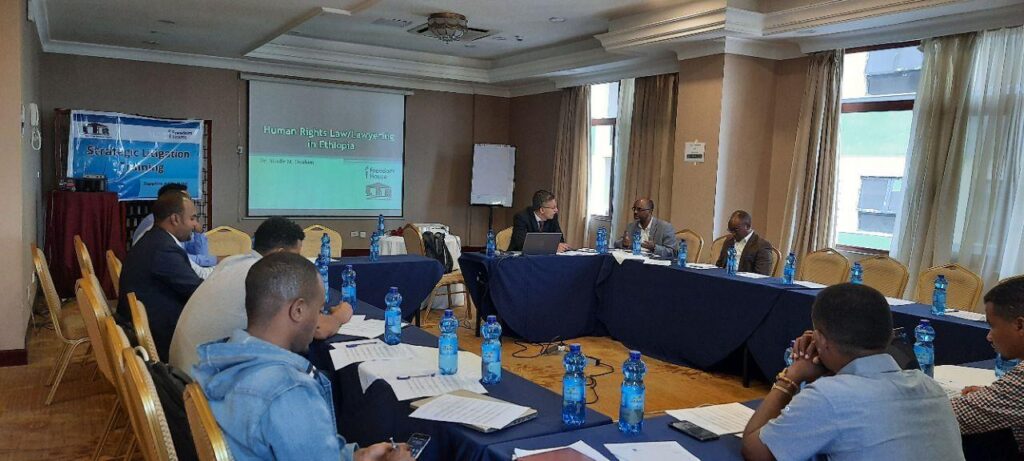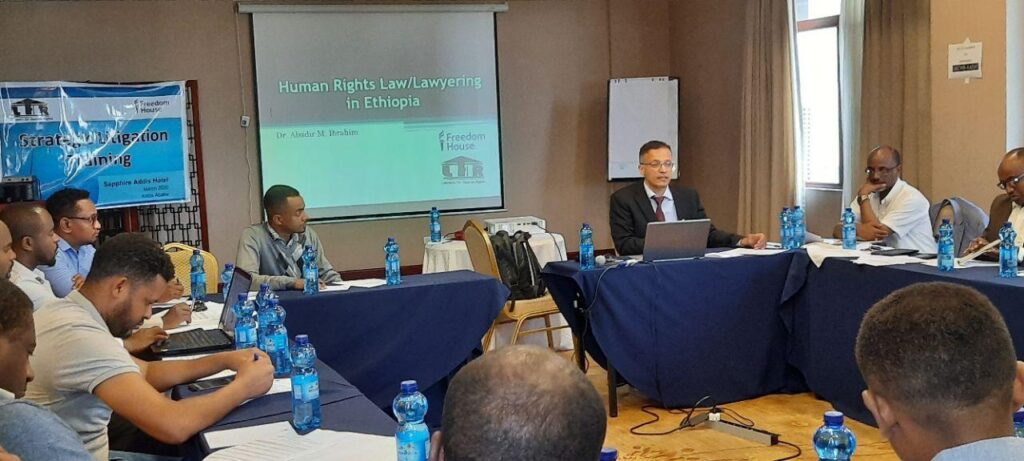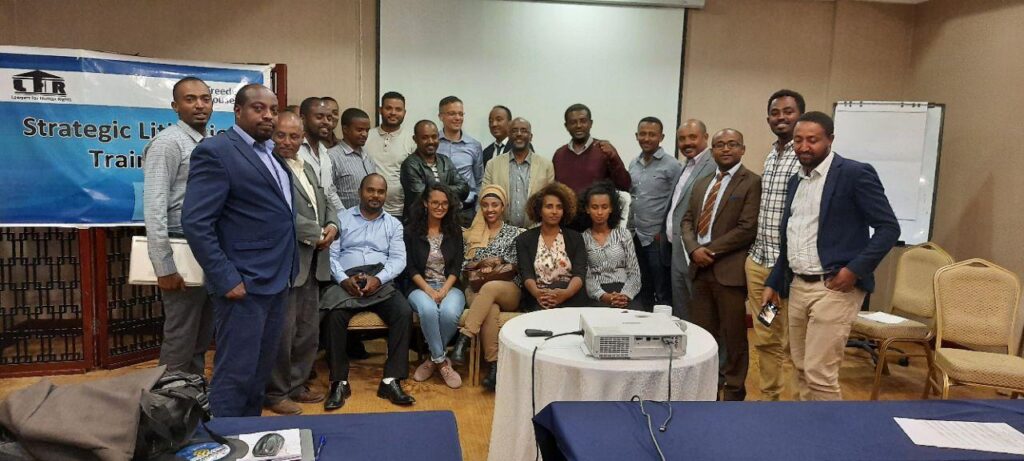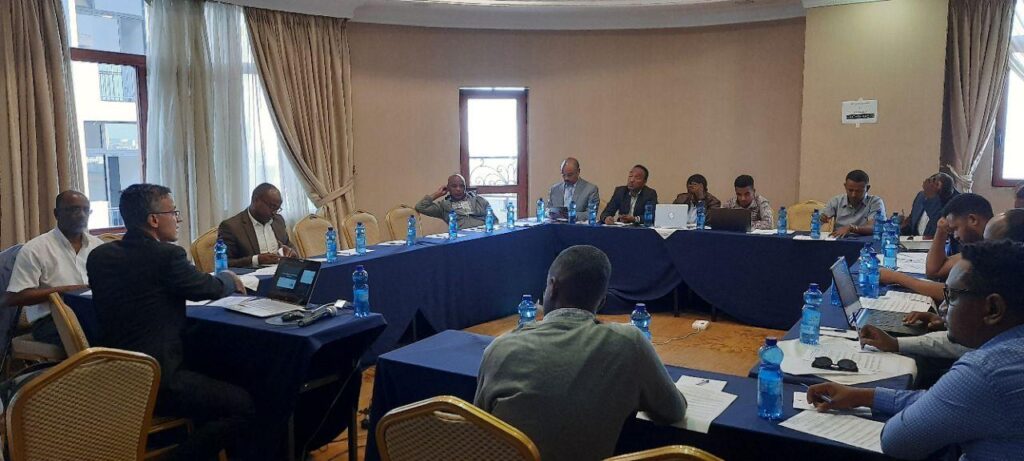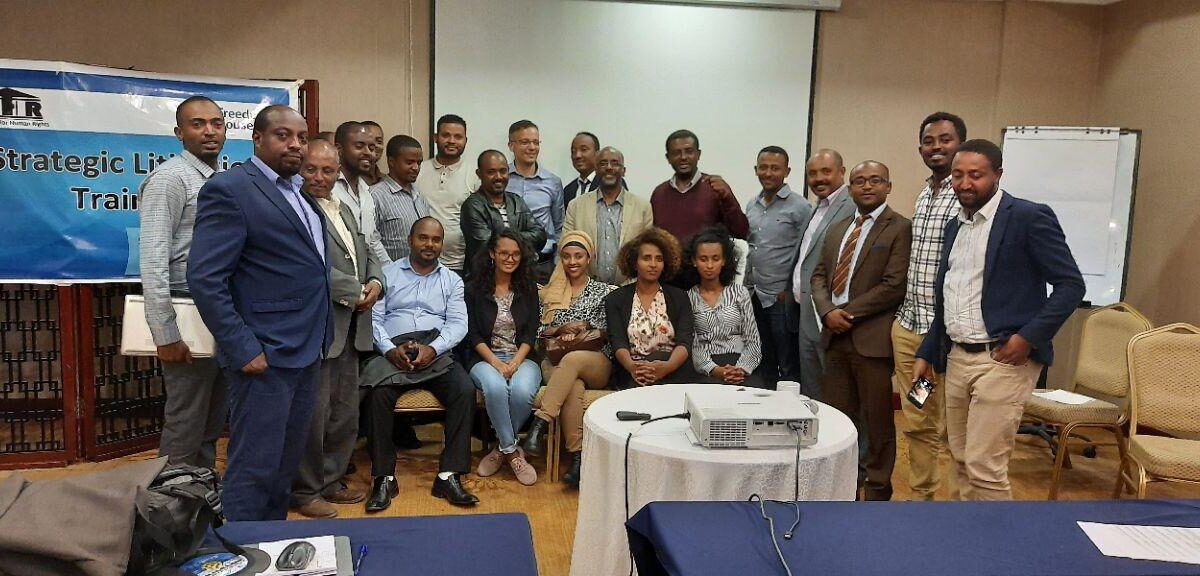
Organization of the Training
LHR has agreed with Freedom House to organize high level training on the concept of strategic litigation to practicing lawyers and develop a database of pro bono lawyers.
Accordingly, the LHR has held a two days intensive training on strategic litigation on March 5 & 6, 2020 at Sapphire Hotel. The training has covered domestic and international forums and options for bringing remedies for human rights violations.
The training was participatory and trainee-centred by encouraging the participants to engage in discussions and reflections. Lectures were also used to trigger discussions on the topics included in the training material. The participants have also done exercises on practical cases of strategic litigation with a view to show how the stages that cases of strategic litigation should pass.
Major Discussion Points
One of the main discussion points in the training was the roles lawyers should play in impacting changes in the society. As this was new to many of the trainees who have experiences in practicing law, the issue triggered discussions where to situate lawyers in bringing changes in the society beyond working on individual cases. In doing so, it was emphasized that lawyers should be cognizant of broader socio-economic and political contexts and contemporary debates on social justice. Awareness of power structure in the human rights world has also been found to be relevant.
Discussion has also be made that lawyers could contribute changes in the society through legal reforms, public legal education, access to justice through ADR or legal aid, oversight of implementation, and strategic litigation to mention some. Strategic litigation, the main theme of the training, was discussed in detail along with stages involved with exercises.
The issue of linking domestic legislation with international human rights law was also discussed. Using international standards in defining the scope and nature of fundamental rights in cases where domestic laws are not clear enough with respect to the scope and limitations on the rights is crucial. International and regional human rights mechanisms were also explored.
Gaps identified and solutions proposed
In order to utilize strategic litigation in Ethiopia, there are constitutional and legislative hurdles. One of the problems raised was courts in many cases does not take judicial notice of international human rights instruments ratified by Ethiopia for the reason that the contents of instruments are not published in the Negarit Gazzette. The solution proposed for this includes invoking constitutional provisions of article 9(4) and 13(2) which declare that international treaties ratified by Ethiopia are part and parcel of law of the land and interpretations of human rights provisions shall be made to conform principles of international human rights instruments ratified Ethiopia.
Issues of ouster clauses excluding courts from judicial review, absence of legislation recognizing public interest litigation, actio popularis and amicus curiae and weak form of constitutional review were also discussed. The environmental protection law seems the only law to introduce public interest litigation allowing third parties to take the case to courts. As long as there are no clear provisions prohibiting public interest litigation and there is at least this law recognizing clearly so, then there is a chance to extend this experience to other cases too.
The participants also raised weaknesses of constitution-adjudicating body as a major constraint in pursuing strategic litigation via this institution. The way the judges respond to such unusual cases also affects the solution pursuing strategic litigation.
Major takeaways
As this training is the first of its type on strategic litigation, LHR has learned a lot how to organize a better training in terms of the number of participants and organization of the training etc. As the training was delivered on week days, many of the potential participants who had interests were not able to participate because of the dates were already occupied with court appointments.
Recommendations for future areas of interventions
The concept of strategic litigation is being introduced by LHR to practicing lawyers in Addis Ababa and regional towns. The participants reflected their view that such trainings should be undertaken extensively and reached out to many practicing lawyers so that their role in the protection and promotion of human rights.
Next steps
The participating lawyers were invited by the LHR to bring cases they are interested in and deem appropriate for strategic litigation. Many of them have reflected that they would have done of the cases differently had they been accustomed with the concept of strategic litigation. Owing to the potential that strategic litigation could play, the trainings will continue to be undertaken to reach to a broader legal community in order to build lawyers’ capacity in terms of looking for potential cases that could impact changes. Three cases are already underway to go to courts, and constitution interpreting organ: the victims of torture case, the Qoshe and the Legetafo case.


